INTERVIEW: Jake Smith of Crucifix
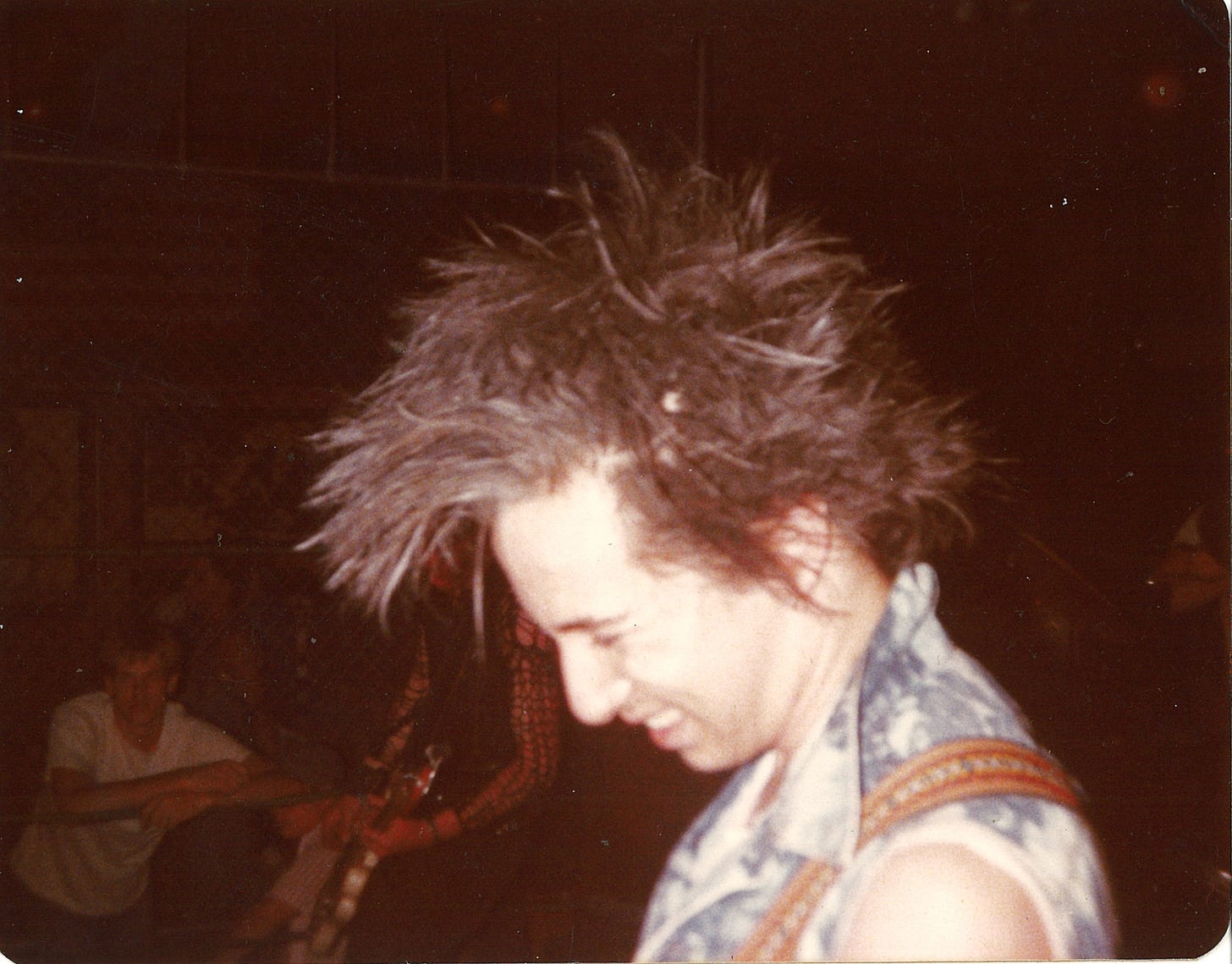
Photo courtesy of Jake Smith
Pardon me for feeding into the grim collective unconscious taking over this dirt clod, but I have been really mulling on the music of San Francisco peace-punks Crucifix for the past few weeks. Now, that’s not to say there isn’t a day where the absolute bodaciousness of songs like “Blind Destruction” or “Steelcase Enclosure” don’t cross my mind, because they sure as shit do. Yet, as the apocalyptic visions they caste into my eyes and ears as a middle-schooler become more concrete, I can’t help but squeeze myself deeper into their monstrous sound and find solace in its’ roar.
In an effort to gather more information on the band in these “uncertain times”. I reached out to Jake Smith, the guitarist for the band when they released their one and only album, the indestructible Dehumanization to find out more. And boy did I!
Enjoy!
SL: What’s the time frame of when you found out about the Northern California punk scene?
Jake Smith: Sometime around 1978 was when I became aware of a local punk scene. I'd been playing drums for a year or so, and was looking for more advanced, i.e., older musicians to play with. This guy who was the father of a kid I'd gone to elementary school with was some kind of a promoter, he heard I could play and told my mom to tell me he could hook me up with some punk bands he was working with. I remember being repulsed yet fascinated by the idea. I only knew of punk from the media coverage of the Sex Pistols at that point.
What was your portal into it and who were the more ‘popular’ bands on the scene at that time?
Two things happened at the same time. I transferred to an alternative school where there were some punk kids. They were welcoming and seemed cool and funny to me. They turned me on to Richard Hell's Blank Generation, the Ramones, and Jim Carroll. I had also been hanging out at this basement jam pad near my house in Berkeley, playing casually with these older rocker dudes that I thought were cool. They had experience. This was 1979 or 1980. I think it was New Years Eve ‘79, this new guy shows up at the jam house. Short hair, black clothes. Dave Velasquez, then known as Dave Yippie, later as Dave Slave. He was only a few years older than me. I was 14, he was like 19. He played me the Clash, Buzzcocks, Damned, Stranglers, a lot of cool '77 stuff. Plus T Rex and shit like King Crimson. We were also both into reggae and ska, so we became friends. Dave was my musical "older brother" who really ushered me into the punk scene as a musician and fan. He had a political perspective as well, pre-Crass anarchist, so my reading list expanded with Herbert Marcuse and Robert Anton Wilson added to the Sci-Fi and comics. Popular bands of the time were like The Offs, Crime, The Jars, Avengers, Eye Protection, Pearl Harbor & The Explosions, Mutants, Tuxedomoon, Sleepers, The Residents and associated Ralph Records artists. All the new wave art punk stuff was still big. Flaming Groovies played a lot back then. Earl Zero was a reggae cat who did punk shows. Silvertone with Chris Isaak. Vktms. The Lewd.
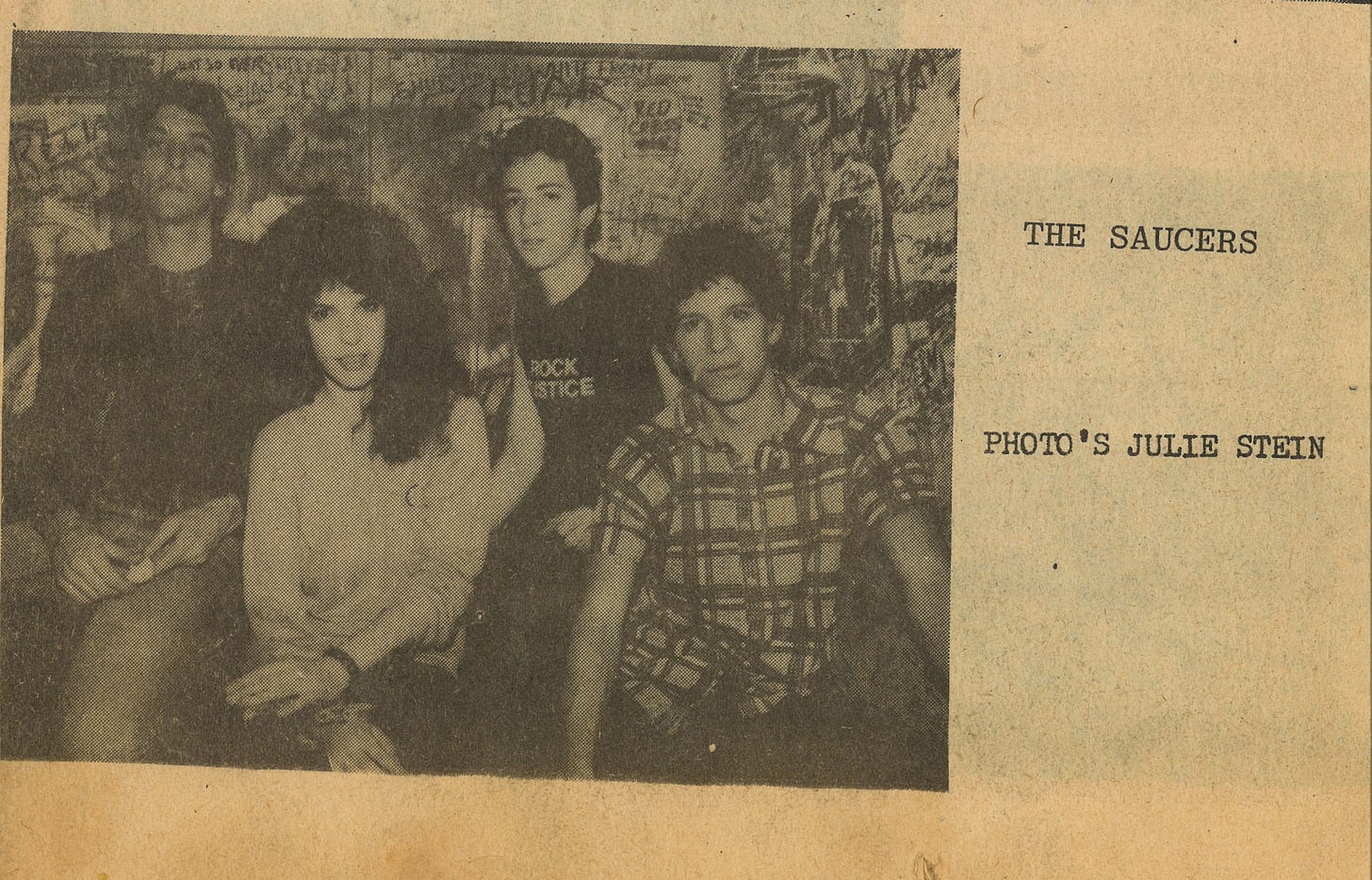
The Saucers in the pages of Punk Globe circa 1980. Courtesy of Jake Smith
Was your first band the Saucers?
Yes. The first band to actually play shows in bars.
How did that come together?
Dave Yippie brought me into the band, which had some previous lineups I guess. At least one other drummer before me.
What ‘style’ of music was the Saucers?
Political New Wave? My then-girlfriend said, "I don't think I like political new wave..." Really it was two bands in one - Joey was older, had been a hippie, played a Farfisa, sang kind of like Fred Schneider. With a Farfisa, every song sounds like “96 Tears”, so some garage-y elements there too. And then Dave's tunes were more in a Clash, Red Rockers vein.
Can you explain how Hardcore Punk came into the East Bay?
Not in any definitive way, but it was a generational thing. The scene the Saucers were a part of went back to the early days of punk and had strong connections to the underground art world. It included many women and was inclusive of gay and trans people. We didn't have the LGBTQ terminology back then of course. People were older, 20s up to 40s. At 14, 15, 16, I was definitely one of the youngest people in that scene. As younger people started getting into punk, they didn't have a connection to The Residents or Pearl Harbor. They wanted something more intense and angry, more confrontational. The Maximum Rock ‘N’ Roll radio show, zine, and compilations were a huge factor in promoting the emerging Hardcore scene and the newer bands.
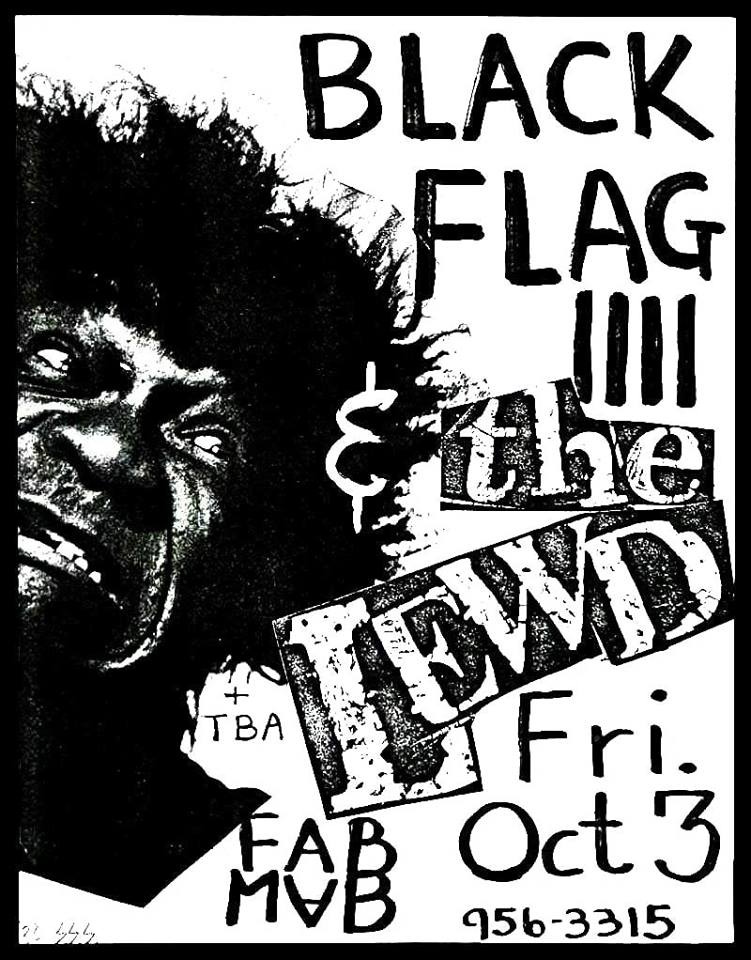
What were some of the first bands in the area you would consider Hardcore? Looking back, The Lewd was probably the first hardcore band in San Francisco that I was aware of. Stylistically anyways. They were from Seattle originally. At a certain point, certain bands, both older (Dead Kennedys, No Alternative, Flipper) and newer, came to be associated with the term Hardcore. Dead Kennedys were just "punk" before they were Hardcore. They were really more of a surf punk band the way Ray and Klaus play. D.H. Peligro was the hardcore guy in that band. But then a new crop of bands came up. So you had Fang from Berkeley, Deadly Reign from Orinda(!), Free Beer from Concord. Ribzy from San Jose. Los Olvidados. Just a bunch of great, young, teenage bands. Social Unrest. Bad Posture.
What attracted you to the Hardcore thing in the early 80s? And on the other side, what made people dislike the Hardcore thing coming around?
It was partly the generational thing, wanting to be a part of something that was more 'ours' and not already played out. And the bands spoke more to our concerns. Many of the older people in the scene didn't appreciate a bunch of drunk 14 yr olds puking in the alley or whatever. There's no question hardcore had less musicality, was rawer, and more emotional. "Punk" was for someone in their 20s, in college, studying art. "Hardcore" was for pissed-off teenagers.
What were some of the first hardcore bands that you connected with?
Locally, it was initially like Dead Kennedys, Flipper, Lewd, but it was also Black Flag, Circle Jerks, Minor Threat, Bad Brains, and especially DOA. I love them to this day. They were fast, overtly political, and played their asses off.
Do you think the East Bay punk scene is instinctually political due to the history of the area?
Probably. For me personally, yes. I played with free speech movement leader Mario Savio's kid. Our parents were friends. But for every Dave Yippie or Tim Yohannan, there were nihilists and apolitical people. I think initially, the east bay scene was more distinctive for its variety and weirdness than politics. Tim's imprint on the scene is huge, and he was heavily influenced by the Revolutionary Communist Party, Spartacist Communist ideology he subscribed to. As an anarchist, I saw Tim as an ally overall. He was also a super nice guy and quite sociable. For those of us really into radical politics, the connections were obvious, but not everyone had that overt political focus. Just being a punk weirdo in the world at that time was a political and social statement, so everyone had skin in the game so to speak.
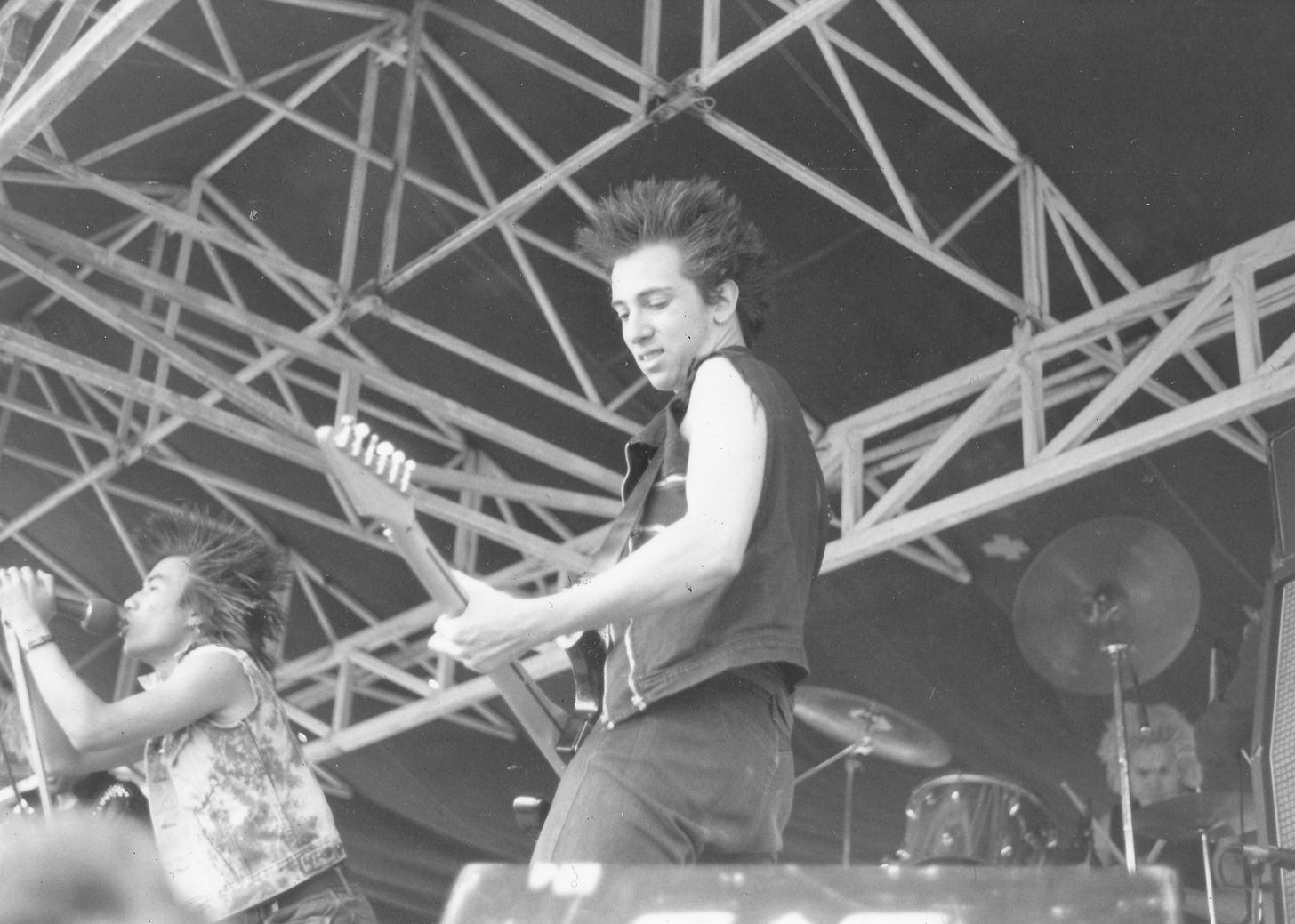
Jake playing with Crucifix at Amherst College 1983. Photo courtesy of Jake Smith
How and when did you know the people in Crucifix and what led you to join?
Were you already a ‘fan’ of the band?
There was a kid from an early lineup before Matt switched to bass, he lived near me and was always talking about his band, but I didn't see them play for a while. Matt (Borruso, Crucifix bassist) and Chris (Douglas Crucifix drummer) were the snobby Northside Berkeley kids who would ignore you at the bus stop. They had cool hair and punk gear. Actual creepers and shit. I don't think they spoke to me before they asked me to try out. I honestly wasn't a huge fan of the band, because they were more of a Germs clone with metal overtones initially. But I did think they were quite good at what they did. Strong performers and that English punk look. They were good live. I had to stop playing drums for about a year in ‘83, due to a shoulder injury. I was singing for a band I put together, Police State. Heavy British punk influences. Mike and Billy from Faith No More did some shows with the band, but when I made the demo, I ended up just playing all the instruments. Tim played the demo on the Maximum Rock ‘N’ Roll show, and not long after that, Jimmy (Crucifix guitarist) reached out to me. They were going on tour, and he wanted to bow out before it was too late to find a replacement. I didn't even own an amp of my own and had never played guitar in a band at that point, but I'd been playing more since I couldn't do the drums on a band level. Coincidentally, I had recently also learned how to properly spike my hair, so I had the right look.
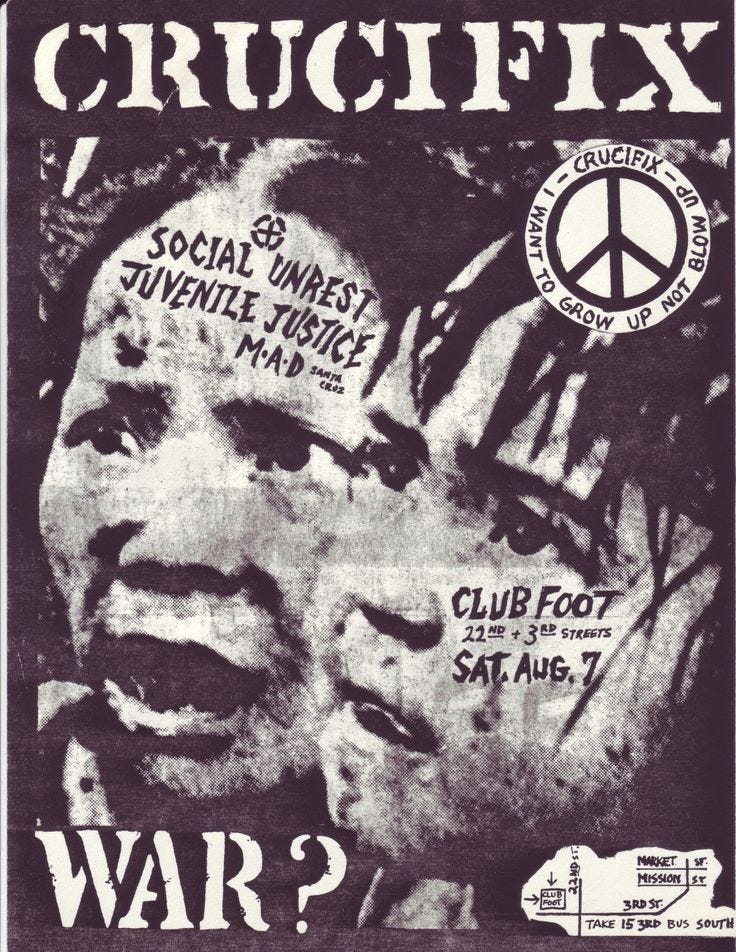
It was pretty obvious the band was influenced by Discharge and other UK punk of the time. What attracted both you and the people in Crucifix to these bands?
You think so? I don't see it. We were influenced mostly by Hungarian choral music and sea shanties (Laughs) No, but those bands had a cool look, a "not from here" vibe. All that early 80s British street punk and Oi, and especially the Midlands bands - Discharge, GBH, Varukers. It sounded great, loud, and fast, plus they looked really cool! Most of the American hardcore bands were anti-image. Rollins with long hair and shorts. We were like punk mods - we all wanted to be The Face! If Discharge looked like the Meat Puppets, I'm not sure they would have had the same impact. At the same time, those Clay Records GBH and Discharge recordings sounded amazing. Massive.
Did the band take a lot of crap for being so inspired by UK Punk in both look and sound?
Definitely. We couldn't exactly deny it though. Chris had the exact same Crass tattoo on his shoulder as Garry from Discharge.
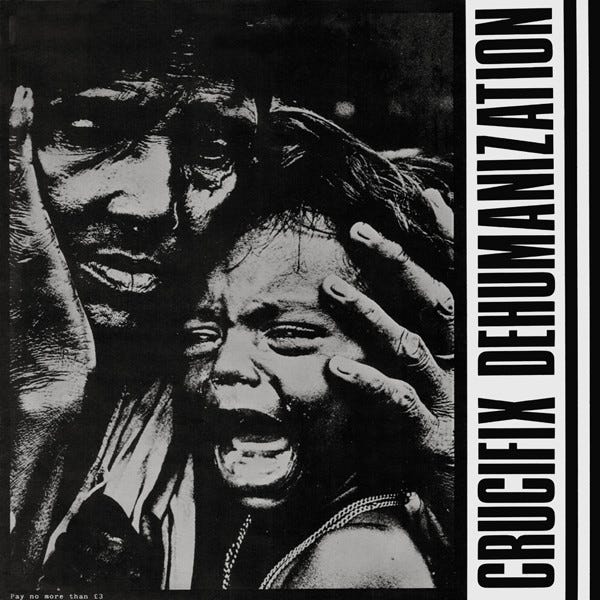
How long was it before you recorded the album with the band? Again, any memories from the recording?
I joined the band in the spring of ‘83, and we did the LP in the fall; like October or November. Memories of the recording? That was my first time making a record. I'd been in the studio with the Saucers and offshoot band the Allies, but those were just demos. I had also done the Police State demo, just a 4 track cassette deal, which was really my 1st production. So, having an interest in the technical and creative sides of recording, I was heavily involved in the selection of the studio, and the recording and mixing process. For example, those are my drums on the record, that I tuned. And got the sound with the engineer. We chose this guy Peter Miller, who had a 1" 16 track room with a Trident board. He was an English guy who resembled Roy Orbison and loved American roots music. To our Anglophile eyes, he was perfect. Making cups of tea and always with the dry British humor. It almost felt like we had gone over there to record. I ended up working as a record producer later on, but Dehumanization was my first legit production or co-production credit. Or should have been. I did what I always do, which is hopefully get great sounds and try and be flexible and creative in service to the songs. We had to punch in a lot of Sothira's vocals, the songs had gotten faster, and going in, he was maybe less prepared than the band, who were super tight at that point. But he rose to the occasion. When he dropped the opening rap to Annihilation, Peter and I were like "he sounds good!" That's when I first realized how difficult it was for a singer to do their part, in a booth, under a microscope. The original vinyl release looked great, all that foldout Crass packaging, but I have to say I was disappointed in the sound of the finished product. John Loder, who was like the Crass business guy, was also an engineer, and he mastered all the releases. All the Crass records had this brittle, high mid-range boost that was his mastering signature. It worked for those bands, who tended to have tinny guitars and boxy drum tones with little low end. But with us, it had the effect of smearing the guitars and fuzz bass together and collapsing the soundstage, although I couldn't articulate that at the time. It just sounded a bit tinny and small compared to what we delivered, which was more of a Clay Records sounding mix. I was pleasantly surprised by the mastering job on the CD rerelease. You can hear the guitars better and the stereo image is back. Loder (RIP) was a great guy but a shit mastering engineer.
Would you say Crucifix was the impetus for a Peace Punk scene in SF with Trial, @ State Of Mind, etc?
Don't forget PLH, who had to be told once that they had essentially rewritten a Crucifix song and they needed to stop playing it. 100%. We brought Robbie and Alison of @ State from Philly back to San Fransisco. Trial had Matt's little brother as the singer. I produced their EP as well. Fully. From pre-production to supplying gear and selecting the studio. Tracking, mix, and mastering at Fantasy with George Horn, who was the guy back then. Came out great. They fucked me on the credits though. "Produced by Trial and Jake." No last name and they were not co-producers. They were green as fuck.
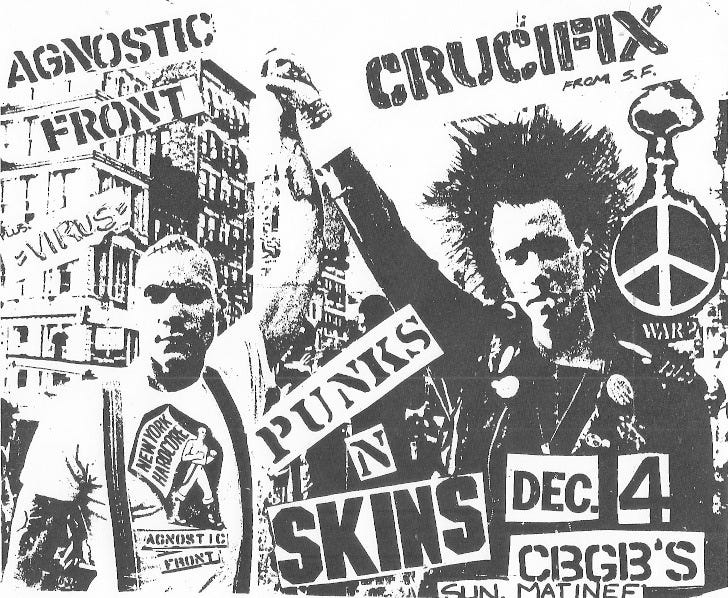
Did you end up going on the US and Europe tour in 84? If not, why did you quit and/or asked to leave the band?
I left the band early in the ‘84 tour. I found out they were withholding money while I was broke, spending it on hair dye and tattoos. I was also pissed off that they continued to use old photos of the band with Jimmy, after I'd been in the band for a year. They were basically shitty to me the entire time and had a really dysfunctional dynamic among the three of them. I wanted to tour and support the record, but it was unbelievably isolating to be on the road without even one ally. I understood why Jimmy didn't want to tour with them, which is how I came to join the band in the first place.
After Crucifix, did you completely walk away from the hardcore scene? I know you played in an early line-up of Faith No More...was that right after Crucifix? Please give me the rundown of your post-Crucifix musical career.
Fairly soon after that, I did walk away from the scene. The last straw for me was a night at the On Broadway. All the peace punks are now shunning me, and some skinhead picks a fight with me as a pretext to his crew throwing me a boot party. I look around for backup and see the PLH guys looking at their feet, anywhere but at me. I was maybe 130 pounds back then, all hair and creepers. Not a brawler. I decided I better just hit the guy first. Next thing I know the skinhead is in a headlock and I'm ramming his head into a pole. Turns out he was even less of a fighter than me. I was pretty angry apparently, and he never even landed one punch. Now the peace-punk guys are there to help break it up. Those PLH cowards then pestered me for the rest of the night, trying to get me to accept the skinhead's apology. The Faith No More thing overlaps with the end of Crucifix. After Crucifix I went right into the reggae band Vince Black and Crucial on rhythm guitar. He's played with Black Uhuru and Andrew Tosh among others. Great musician. Also an old punk rocker from UK ‘77 days. He knew all those folks. Then I was in a funk band called the Snapp. Back on drums. Started trying to rap, and got into production in a big way, learning all the new technology around MIDI and sampling as well. Started doing little local production gigs. Made more records, but nothing special. In the early 90s, I had some success as a producer/songwriter and notched a few actual hits. Two gold records. I got a lot of work for a few years, but ultimately things slowed down. Ironically, people only saw me as this R&B, pop, Hip Hop guy. I never stopped doing music, but it stopped paying the bills. Ended up getting back into the punk scene in my 30s. Divorced, living in LA, and kinda bummed out. Found some old friends and the Crucifix thing opened a lot of doors. Played with a young Hardcore band called Threatning Verse. Did an EP with them. Mike Vallejo from Circle One engineered and I produced and mixed it. Did a bunch of other projects including the Seeds, Woolly Bandits, Flamethrowers, Calavera. In 2010 and 2011, I toured the US and Canada on guitar with Bad Manners. Moved to Brooklyn. Played drums in a few bands there, including Bradley Dean & the Terminals. Produced a 7" for them.
Are you shocked people still hold an interest in Crucifix? To you, what is it about the band that people still connect to in 2020?
I used to be shocked that interest remained. I was genuinely surprised that people remembered us, let alone wore back patches and shirts. I think the image is part of it, but we also made a great record, which was distributed widely, and sold a lot for the time and genre. A lot of people have that LP. I think it's just a really solid political Hardcore record of the era. There's a certain energy, we played really fast and spiked our hair cool.

one of the greatest US punk bands, ever. Absolutely pulverizing